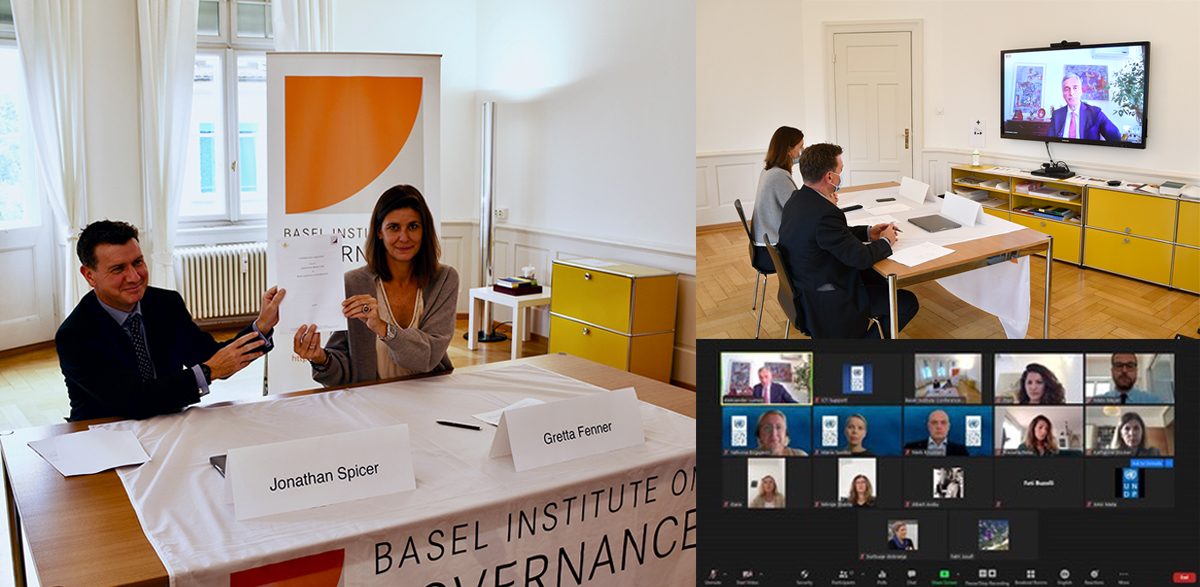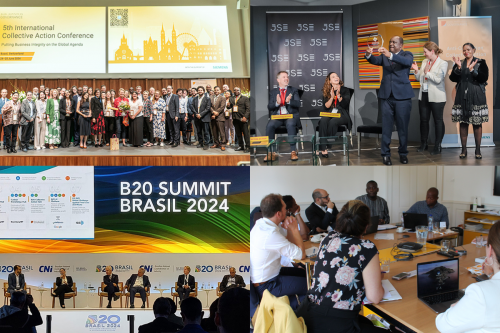New cooperation with Kosovo’s Office of the Chief Prosecutor on asset recovery, with UNDP support

The Basel Institute on Governance is delighted to have signed today a cooperation agreement with the Office of the Chief Prosecutor of Kosovo. This agreement lays the foundation for supporting Kosovo in the investigation and prosecution of corruption offences and recovering stolen assets.
We enter into this new agreement in the context of our partnership with the United Nations Development Programme (UNDP) which leads the implementation of the Support to Anti-Corruption Efforts in Kosovo Project (SAEK III). Establishing an effective system for the repatriation of stolen assets is the third component of UNDP’s SAEK III programme, which aims to reduce the level of corruption in Kosovo.
As highlighted by Chief Prosecutor Lumezi, the expectation is that through this partnership, we can jointly “increase the efficiency and performance of the prosecutorial system to recover stolen assets”. To this end, the programme of work will consist of mentoring prosecutors and assisting them with using novel investigative and legal tools to trace and recover stolen assets. It will also include the development of a specialised training curriculum on financial investigation, international cooperation and asset recovery jointly with Kosovo’s Academy of Justice.
The recovery of stolen assets, if they are used for the benefit of the people of Kosovo, is an important driver for achieving the Sustainable Development Goals. Yet asset recovery is a highly complex and therefore slow process. Basel Institute Managing Director Gretta Fenner today reiterated the importance of realistic expectations. She also stressed that the benefits of asset recovery are not just in returning “hard” assets in the form of money. Equally important are the so-called “soft assets” that can be generated through asset recovery, and which come in the form of more trust in government, stronger rule of law, and reduced impunity for criminals.
Funding of the SAEK programme by the Swiss Agency for Development and Cooperation Office in Kosovo and the Swedish International Development Cooperation Agency (SIDA) is gratefully acknowledged.



